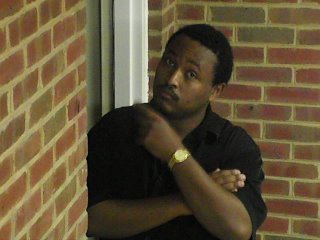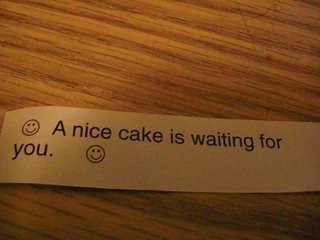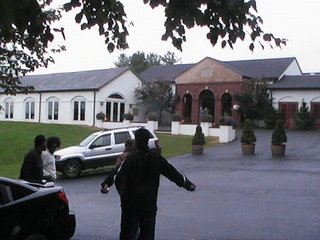And on Thursday night in the USA at 7.30pm on espn the uva cavaliers are playing again, that’s right another ESPN game!!! So if you’re in Australia tune in on Friday morning at 9.30am in ESPN to watch the Cavaliers win, which we will, cause the team we play is even worse than us!!
And i have tested, this site is viewed best with INTERNET EXPLORER, other browsers will make the pictures overlap and stuff.
I thought in the spirit of Sue’s comment, I don’t want to let the donkey die, so I’m going to write what the hell I want. I think this post is for those with some free time, it could be seen as a way to pass time if you have nothing better to do, but an interesting way all the same. And for the others get back to writing your TPS reports. It’s a long post but I don’t give a ratsass.
In classes over the years we have discussed the form of death, and how it effects our view on the world whilst alive. I kind of like Epicurus who wasn’t the great hedonist everyone thinks he was, he was all about being free from the anxiety of death, and choosing the simplest path of least worry, he didn’t say pursue luxuries, because that would cause strain, but he felt like you could indulge in them as much as you like if they were easy to come by. Not really a great nation building strategy, but a way to live none the less.
This is an excerpt from the first page of the Epicurus reader and I think it sets up why I wrote the following piece, with all the essays I have to write for class, I figure why not write a bit of one for my leisure, more of a coherent rambling actually.
I like first pages of books, they are a very good summary of what is to follow, and once you read the whole book you slowly forget it anyway, so you might as well just read the first page from a hundred great books, than all the way through one.
Epicurus was around 300bc, an ancient Greek philosopher. And as with all philosophy, there are some points that are hard to swallow and seem absurd and you don’t have to think about, but there might also be some interesting stuff that you might find relevant.
-It’s a basic overview intro of epicurus, it just sets out a few of the main points, I thought it was interesting, that’s why I typed it out.
The excerpt is as follows:
-The fundamental obstacle to happiness, says Epicurus, is anxiety. No matter how rich or famous you are, you won’t be happy if you’re anxious to be richer or more famous. No matter how good your health is, you won’t be happy if you’re anxious about getting sick. You can’t be happy as a human being if you’re worried about being punished or victimized by powerful divine beings. But you can be happy if you believe in the four basic truths of Epicureanism: there are no divine beings which threaten us; there is no next life; what we actually need is easy to get; what makes us suffer is easy to put up with. We need food, water, shelter from the elements, and safety from hostile animals and people. All these things lie ready to hand and can be acquired with little effort or no money. We don’t need caviar, champagne, palaces, or bodyguards which are expensive and difficult to aquire and keep. People who want more than they need are making a fundamental mistake, a mistake that reduces their chances of being satisfied and causes needless anxiety. The discipline of Epicurean philosophy enables its followers to recognize how little they actually need, to then enjoy possessing it, and to enjoy the confidence that they will continue to possess it. On the other hand, there is no reason to enjoy occasional luxuries, if they happen to be easily available. (I think this point is why everyone wrongly now associates Epicureanism with hedonism) There is nothing wrong with luxury in itself, but any dependence on luxuries is harmful to our happiness, as is every desire for unnecessary things. ‘What’s terrible is easy to endure.’ There is no denying that illness and pain are disagreeable. But nature has so constituted us that we need not suffer much from them. Sickness either brief or chronic, and either mild or intense, but discomfort that is both chronic and intense is very unusual; so there is no need to be concerned about the prospect of suffering. This is admittedly a difficult teaching to accept, especially for young people, but as people get older and more experienced in putting up with suffering, they tend to recognize its truth more and more, as did the roman philosopher Seneca, whose health was anything but strong. Epicurus himself died in excruciating pain, from kidney failure after two weeks of pain caused by kidney stones. But he died cheerfully, he claimed, because he kept in mind the memory of his friends and the agreeable experiences and conversations they had had together. And mental suffering is agony to endure, but once you grasp the Epicurean philosophy you won’t need to face it again.
‘Don’t worry about death.’ While you are alive, you don’t have to deal with being dead, but when you are dead you don’t have to deal with it either, because you aren’t there to deal with it. ‘Death is nothing to us,’ as Epicurus puts it, for ‘when we exist, death is not yet present, and when death is present, then we do not exist.’ Death is always irrelevant to us, even though it causes considerable anxiety to many people for much of their lives. Worrying about death casts a general pall over the experience of living, either because people expect to exist after their deaths and are humbled and terrified into ingratiating themselves with the gods, who might well punish them for their misdeeds, or else because they are saddened and terrified by the prospect of NOT existing after their deaths. But there are no gods which threaten us, and, even if there were we would not be there to be punished. Our souls are flimsy things which are dissipated when we die, and even if the stuff of which they were made were to survive intact, that would be nothing to us, because what matters to us is the continuity of our experience, which is severed by the parting of body and soul. It is not sensible to be afraid of ceasing to exist, since you already know what it is like not to exist; consider anytime before your birth- was it disagreeable not to exist?
‘Don’t fear god.’ The gods are happy and immortal, as the very concept of ‘god’ indicates. But in Epicurus’ view, most people were in a state of confusion about the gods, believing them to be intensely concerned about what human beings were up to and exerting tremendous effort to favour their worshippers and punish their mortal enemies. No; it is incompatible with the concept of divinity to suppose that the gods exert themselves or that they have any concerns at all. The most accurate, as well as the most agreeable is to think of them as the Greeks often did, in a state of bliss, unconcerned about anything, without needs, invulnerable to harm, and generally living and enviable life.
If, however, the gods are as independent as this conception indicates, then they will not observe the sacrifices we make to them, and Epicurus was indeed widely regarded as undermining the foundations of traditional religion.-
-I wanted to form a basic groundwork, which helps lead to a discussion on existentialism.
With a brief overview on death’s insignificance;
Dear Mr. Vernon...We accept the fact that we had to sacrifice a whole Saturday in detention for whatever it was that we did wrong. But we think you're crazy to make us write this essay telling you who we think we are, what do you care? You see us as you want to see us...in the simplest terms and the most convenient definitions. You see us as a brain, an athlete, a basket case, a princess and a criminal —just kidding, that’s Brian’s breakfast club essay.
-In life, our body has certain desires; you are by chance either male or female, and in that instance it will particularly shape your traits and personality, your ‘self’- This self then associates through a childhood more traits, and depending on either being male or female will learn to identify with these traits. A male will bond differently with other males, and females will have a different bonding and communicating experience- to the males. The external factors such as parental and environment also mold the personality. The chance of being male, female, rich, poor, white, black, yellow and the country of our origin, all physically determine the self identity, completely objective from our own desires.
On a basic level, the desires of the body and the quenching of these desires consume much of a daily task, the nourishment required is an epic undertaking and requires a high level of concentration. One’s own inherent desire to procreate drives other concentrations, and requires the gathering of shelters and foods and other supplies and a grasp of general social skills. If these desires do not exist then there are still the limitations of ones own body, which shape who we are - a cripple – purely through physical limitation will have a different experience of life, than is to the same person pre-cripple. So our physical desires and limitations define who we think we are, and then in that defining we find a certain individuality, that we take comfort in as thinking of as an innate ‘us.’
A random chance of sperm, parental guidance, shape and stamina of our body and brief encounters with either influential or insignificant beings, can affect our perception of the world and therefore how we view ourselves in that world.
Our temporary nature, in a fleeting life is based on bodily needs. It then follows that in death, these desires cease to exist and so do we. But it can also be argued on the side of those who believe in a continuation of life after passing that it must then be accepted, that it would be nothing as a current ‘self’ would recognize. You would no longer have the genes that determine your masculine or feminine traits, initially you would be unrecognizable, then the absence of bodily needs such as water and food would allow a leisure time and absence of necessity and desire that is unrecognizable. Without the physical limitations of a body giving you the attributes you thought of as you while you were living, such as – strong, weak, smart, good looking, ugly, driven, apathetic- without these you have no framework for your former personality to hang on to, you are a different person, and that different person has no connection to its former self, and has no longing to be its former self. So if in death there is a form of continuation, it is unlike who we are now, and does not effect who we are now, so for our current selves death is insignificant. For once it happens there is no desire to be alive again, because there is no same personality with the same bonds.
So then touching on Sartre, in this current state of being alive, and still knowing that death is inevitable, all one can do is assign our own values to our own life depending on who we want to be. We can take comfort in being responsible for choosing who we want to be, within the limits of our physicality. We can even choose to believe in some sort of grand destiny for our lives, or realize our own meaningless existence and live in a cave. These values we choose, can come from religion, societal norms, or even pop culture. One can be free to choose how to spend their life on this mortal coil, free from the fear of death. We are alive now, and once death happens there is either nothing-and so an eternal calm, or there is a form of continuation but it is so different and free from mortal desires and who we are now, that there is no sense of loss and longing to be who we once were.
And here’s a fucking conclusion for you, if you are still wondering about god,
1, if the world is caused by god and if god is responsible for everything there is, then is god responsible for evil? Then
2. if god is responsible for everything, so there is providential design- then what are humans responsible for?
-So it seems, like all scientific theories, if there is something unexplained you just come up with a ‘theory’ to fill that void. And if it seems plausible, roll with it, and come up with some scriptures to back it up. So in asking about cause and effect, something must be caused by an effect, and then even saying that a cause and effect can co exist, God still is the great uncaused cause, God is a way to fill a hole.
http://www.wspa.org.au/index.asp sad.
Quotes:
'how much honesty's healthy? say what's on your mind, the only way to be,' - lagwagon
'you're pretty lucky if you're reading this, you already have more resources than a lot of people, so do whatever the fuck you want to, at least you're not drinking water from a contaminated river.'


 his is Andres my flatmate, he came first with that piece of crap!!!
his is Andres my flatmate, he came first with that piece of crap!!!






































